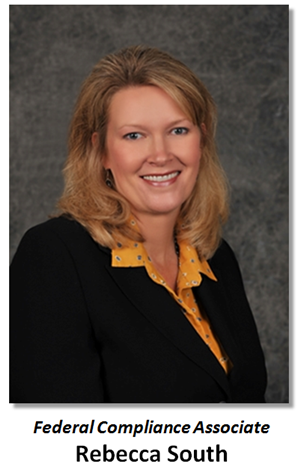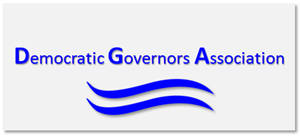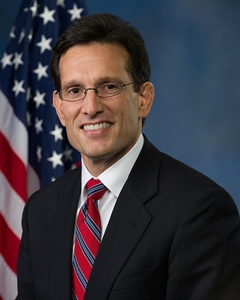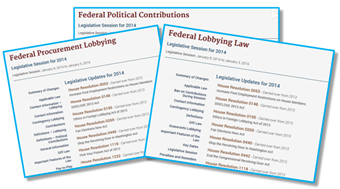June 17, 2014 •
Tuesday Lobbying and Campaign Finance News Update
Lobbying “Bottom Line” in The Hill. Campaign Finance California: “Senate approves campaign fundraising blackout during budget negotiations and end of session” by The Associated Press in the Daily Journal. Ethics “Watchdog urges bribery probe of congressman” by Mario Trujillo in […]
 Lobbying
Lobbying
“Bottom Line” in The Hill.
Campaign Finance
California: “Senate approves campaign fundraising blackout during budget negotiations and end of session” by The Associated Press in the Daily Journal.
Ethics
“Watchdog urges bribery probe of congressman” by Mario Trujillo in The Hill.
New Mexico: “NM governor’s ex-aide pleads guilty to hacking charges” by Julian Hattem in The Hill.
Ohio: “Ohio Rep. Dale Mallory Named In Ethics Probe” by The Associated Press on WBNS TV News.
Rhode Island: “House panel passes revised ethics bill” by The Associated Press in the San Francisco Chronicle.
Elections
“Supreme Court: Groups Can Sue over Campaign Lies” by Julie Rovner in Governing.
The Colorado Supreme Court issued its decision today in Gessler v. Colorado Common Cause, upholding a lower court’s decision ruling Secretary of State Scott Gessler did not have the authority to raise campaign finance limits for political issue committees. In […]
 The Colorado Supreme Court issued its decision today in Gessler v. Colorado Common Cause, upholding a lower court’s decision ruling Secretary of State Scott Gessler did not have the authority to raise campaign finance limits for political issue committees. In 2002, voters passed a constitutional amendment creating a $200 contribution and expenditure threshold for issue committee status. The provision required both retrospective and prospective contribution and expenditure reporting once issue committee status was achieved.
The Colorado Supreme Court issued its decision today in Gessler v. Colorado Common Cause, upholding a lower court’s decision ruling Secretary of State Scott Gessler did not have the authority to raise campaign finance limits for political issue committees. In 2002, voters passed a constitutional amendment creating a $200 contribution and expenditure threshold for issue committee status. The provision required both retrospective and prospective contribution and expenditure reporting once issue committee status was achieved.
Gessler later promulgated Secretary of State Rule 4.1 to increase the threshold to $5,000 and eliminate retrospective reporting requirements. Because the secretary of state does not have the authority to promulgate rules in conflict with other provisions of law, the Court affirmed the appeals court judgment and set aside Rule 4.1.
June 16, 2014 •
Ohio Lawmakers to Introduce Campaign Finance Legislation
Ohio Reps. Nick Celebrezze and Ronald Gerberry announced plans last week to introduce legislation creating a campaign contribution blackout for the attorney general’s office. New legislation would prohibit contributions to the attorney general and to any party-endorsed candidates for the […]
 Ohio Reps. Nick Celebrezze and Ronald Gerberry announced plans last week to introduce legislation creating a campaign contribution blackout for the attorney general’s office. New legislation would prohibit contributions to the attorney general and to any party-endorsed candidates for the office while the office is reviewing bids on contract work.
Ohio Reps. Nick Celebrezze and Ronald Gerberry announced plans last week to introduce legislation creating a campaign contribution blackout for the attorney general’s office. New legislation would prohibit contributions to the attorney general and to any party-endorsed candidates for the office while the office is reviewing bids on contract work.
Celebrezze believes a blackout period will help eliminate the appearance of impropriety. Attorney General Mike DeWine, however, claims enforcement of the blackout periods makes the process inherently more political. Moreover, he said contributions have not influenced his decision to award contract work.
June 16, 2014 •
Ask the Experts – LDA Tracking and Reporting
Q. To streamline LDA tracking and reporting, our company includes 100 percent of our in-house lobbyists’ compensation as lobbying on our quarterly report. Is this a reasonable approach? A. The LDA does not contain any special tracking requirements for reporting […]
 Q. To streamline LDA tracking and reporting, our company includes 100 percent of our in-house lobbyists’ compensation as lobbying on our quarterly report. Is this a reasonable approach?
Q. To streamline LDA tracking and reporting, our company includes 100 percent of our in-house lobbyists’ compensation as lobbying on our quarterly report. Is this a reasonable approach?
A. The LDA does not contain any special tracking requirements for reporting expenditures. Registrants employing in-house lobbyists are required to provide a “good faith estimate of the total expenses” of their lobbying activities. With the “good faith” standard as the back drop, an organization should determine whether including 100 percent of their lobbyists’ compensation meets that standard. Aside from the tax implications of including 100percent of compensation, typically, there is some time that is spent during the course of a quarter that is not defined as lobbying and varies from month to month depending on what issues are being addressed. Therefore, providing a good faith estimate, in most cases, will require a registrant to implement some sort of tracking process to meet the standard. In the event of an audit, the ability to demonstrate reasonable efforts to track and capture lobbying activity, and only lobbying activity, is an additional benefit.
You can directly submit questions for this feature, and we will select those most appropriate and answer them here. Send your questions to: marketing@stateandfed.com.
(We are always available to answer questions from clients that are specific to your needs, and we encourage you to continue to call or e-mail us with questions about your particular company or organization. As always, we will confidentially and directly provide answers or information you need.) Our replies to your questions are not legal advice. Instead, these replies represent our analysis of laws, rules, and regulations.
June 16, 2014 •
Monday News Roundup
Lobbying “Which federal agencies do lobbyists target most?” by Elizabeth Shell in PBS Newshour. “Unemployment Extension Cause Has Invisible Lobby | K Street Files” by Kate Ackley in Roll Call. “Former Rep. Dan Lungren returns to lobbying” by Megan R. […]
 Lobbying
Lobbying
“Which federal agencies do lobbyists target most?” by Elizabeth Shell in PBS Newshour.
“Unemployment Extension Cause Has Invisible Lobby | K Street Files” by Kate Ackley in Roll Call.
“Former Rep. Dan Lungren returns to lobbying” by Megan R. Wilson in The Hill.
Canada: “Number of federal lobbyists up 24 per cent” by Jason Fekete in The Star Phoenix.
Florida: “Lobbyists, lawyers jostle for pot business” by Dara Kam in The News Herald.
Kentucky: “Lobbyist hosts RPK fundraiser with top GOP senators” by Tom Loftus in the Courier-Journal.
Oklahoma: “Wind energy felt at the state Capitol” by Kurtis Killman in the Tulsa World.
Pennsylvania: “Improvements seen in Phila. lobbying Web site” by Alisha Green (Sunlight Foundation) in The Philadelphia Inquirer.
Campaign Finance
“What if your cell phone buzzed every time someone gave your congressman a ton of money?” by Emily Badger in The Washington Post.
“What America Can Learn From Norway’s Success in Regulating Campaign Finance” by Emmett Rensin in PolicyMic.
Ethics
Georgia: “Georgia settles with 3 former ethics commission employees for more than $1.8 million” by Christina A. Cassidy (Associated Press) in The Republic.
Ohio: “Lawmaker might face charges over gifts” by Randy Ludlow in The Columbus Dispatch.
Rhode Island: “Issues to watch at end of General Assembly session” by Erika Niedowski (Associated Press) in the San Francisco Chronicle.
Rhode Island: “R.I. Senate OKs bill for Ethics Commission jurisdiction over state lawmakers” by Mike McKinney in the Providence Journal.
West Virginia: “Ethics Commission to hire interim director” by Phil Kabler in The Charleston Gazette.
Congress
“What Happens in the Senate When No One’s Looking? A Lot” by Humberto Sanchez in Roll Call.
State Legislatures
California: “California Legislature passes $156.4-billion 2014-15 budget” by Chris Megerian and Melanie Mason in the Los Angeles Times.
Minnesota: “Minnesota legislators swap Capitol careers for lucrative county paychecks” by Patrick Condon in the Star Tribune.
New York: “Albany lawmakers leaving unfinished business” by Michael Randall in Times Herald-Record.
Government Tech and Social Media
“Pols have a #fakefollower problem” by Darren Samuelsohn in Politico.
June 16, 2014 •
Georgia Commission Settles Retaliation Claims
The ethics commission has agreed to settle three retaliation claims for over $1.8 million. The claims are each related to an investigation of Gov. Nathan Deal involving 2010 campaign and personal finance reports. Under the terms, the commission’s former deputy, […]
 The ethics commission has agreed to settle three retaliation claims for over $1.8 million. The claims are each related to an investigation of Gov. Nathan Deal involving 2010 campaign and personal finance reports.
The ethics commission has agreed to settle three retaliation claims for over $1.8 million. The claims are each related to an investigation of Gov. Nathan Deal involving 2010 campaign and personal finance reports.
Under the terms, the commission’s former deputy, Sherry Streicker, will receive $1 million, former IT specialist John Hair will receive $410,000, and former staff attorney Elisabeth Murray-Obertein will receive $477,500. The settlements follow an April jury verdict awarding $700,000 plus fees to the commission’s former executive secretary, Stacey Kalberman, who argued her pay was slashed and her deputy’s position eliminated as they were preparing subpoenas in the Deal case.
Murray-Obertein, who arrived after the departures of Kalberman and Streicker, testified she was under pressure to get the Deal case resolved. Hair claimed LaBerge ordered him to alter, hide, and destroy documents related to the Deal investigation.
The commission has denied any wrongdoing and Deal has said he was not involved in any of the commission’s decisions or actions.
June 13, 2014 •
News You Can Use Digest – June 13, 2014
National: What Corrupt States Spend Their Money On Government Technology – Liz Farmer and Kevin Tidmarch (Governing Magazine) | Published: 6/6/2014 According to research published in Public Administration Review, states with higher levels of public corruption spend more money on […]

National:
What Corrupt States Spend Their Money On
Government Technology – Liz Farmer and Kevin Tidmarch (Governing Magazine) | Published: 6/6/2014
According to research published in Public Administration Review, states with higher levels of public corruption spend more money on highways and construction. The study found those projects and police programs provide the most opportunities for lawmakers to enrich themselves, and are positively correlated with state levels of corruption. Meanwhile, highly corrupt states also spend relatively less on health, education, and welfare, categories that were less susceptible to graft and bribery, found the report.
Federal:
Four Years Later, FEC May Finally Update Its Books with Citizens United Ruling
National Journal – Shane Goldmacher | Published: 6/8/2014
Sources said a bipartisan coalition of FEC commissioners is finally moving to update its regulations in the wake of the Supreme Court’s Citizens United ruling after years of stalemate. The proposed rules under consideration by commissioners are narrow in scope, mostly seeking to strip unconstitutional provisions from the books; the revisions would not include the stricter disclosure requirements that some Democrats have sought, said people involved in the matter. But the very fact the FEC is undertaking the effort at all is a significant development for an agency that has become synonymous with Washington gridlock and dysfunction.
From the States and Municipalities:
California – Calif. Senate Adopts New Ethics Standards, Rejects Others
Los Angeles Times – Patrick McGreevy | Published: 6/9/2014
The California Senate passed new rules that will create an ethics ombudsman, update the chamber’s code of conduct, and ban senators from collecting campaign checks during the last four weeks of the legislative session. But the Senate also shot down a bill that sought a broader campaign fundraising ban, and passed a watered-down ethics bill striking out an attempt to limit the value of travel that officials may take at the expense of interest groups who lobby them.
Colorado – Colorado Secretary of State Denies Citizens United’s Press Pass
Denver Post – Joey Bunch | Published: 6/5/2014
A request by conservative political group Citizens United to be treated as a media organization under Colorado election law was denied. The secretary of state’s office ruled an upcoming documentary featuring state politicians “is an electioneering communication” and does not fall under any of the exemptions to state laws requiring political groups to disclose financial donors when running ads that mention candidates within 60 days of an election.
Connecticut – Judge Rules for State’s Campaign Finance Law
Hartford Courant – Edmund Mahony | Published: 6/10/2014
A federal judge dismissed part of a Democratic Governors’ Association (DGA) lawsuit and denied the group’s bid for a preliminary injunction against Connecticut’s campaign finance laws that it said limit the ability of political groups to buy independent ads backing candidates. The DGA maintained that under laws adopted in 2013, the state unfairly treats independent money spent on ads and other political messages by the national group as contributions to particular candidates, and thus subject to donation limits.
Idaho – Ethics Proposal Would Stop Lobbyists from Lying to Lawmakers
Utah Policy – Brian Schott | Published: 6/10/2014
Idaho law prohibits lobbyists from intentionally giving false information to officials. The punishment is up to $100 fine and a one-year suspension of their lobbying license. But the law is basically unenforceable because it is nearly impossible to prove whether a lobbyist provided false information on purpose. State Sen. Daniel Thatcher wants to put more teeth into the statute.
Illinois – State Rep. Derrick Smith Found Guilty in Bribery Trial
Chicago Sun-Times – Kim Jansson | Published: 6/10/2014
A federal jury found Rep. Derrick Smith guilty of taking a $7,000 bribe to support a state grant for a day-care center. He was charged following an FBI undercover investigation that caught him talking about the payoff on tape. Smith was expelled by the Illinois House in 2012 after he was charged with taking the bribe. He won his seat back the same year, but lost the Democratic primary in March.
Maryland – City Chides Developer for Listing Campaign Contributions as Project Cost
Baltimore Sun – Luke Broadwater | Published: 6/11/2014
Baltimore officials approved a deal to sell a pier for the development of a luxury hotel after reprimanding a developer for trying to include campaign contributions to local politicians as part of the project’s costs. Recreation Pier Developers listed donations to city Councilperson James Kraft and state Del. Peter Hammen as part of the more than $3 million it has spent on the project. “The developers believe campaign contributions buys access and helps build a relationship …,” said Maryland Common Cause Director Jennifer Bevan-Dangel.
Maryland – Hershey v. Hershey: Chocolate company sues state senator over campaign signs
Baltimore Sun – Ian Duncan | Published: 6/9/2014
In a federal lawsuit, the Hershey Company asked a judge to stop Maryland Sen. Stephen Hershey, Jr. from using campaign materials that it believes are too similar to its own logo and packaging. The senator’s name, in block capital letters over a brown Maryland flag, looks strikingly similar to the wrapper of a certain confection, the chocolate maker says, an impermissible use of what it calls its “trade dress.”
Nevada – In Nevada, Nobody Wins (Sort-Of)
Politico – Steven Shepard | Published: 6/11/2014
More Democratic primary voters cast ballots for “None of these candidates” than for any actual candidates for governor in Nevada, a testament to a weak field looking to challenge popular Gov. Brian Sandoval and a unique state election law that allows voters the none-of-the-above option. “None” led the way with 30 percent of the vote. Finishing second was former state economic development director Robert Goodman, who won 25 percent of the vote.
North Carolina – N.C. Investigating Donations by Sweepstakes Industry
The Virginian-Pilot – Michael Biesecker (Associated Press) | Published: 6/11/2014
The State Bureau of Investigation is conducting a criminal probe into campaign contributions from the video sweepstakes industry to some of North Carolina’s top elected officials. The Associated Press reported last year that donations from gaming software magnate Chase Burns, who was pushing for legalization of his industry in North Carolina, may have violated state laws prohibiting corporate money from “directly or indirectly” funding political campaigns.
Pennsylvania – A Bad Bet: GOP Governors Assn. crossed state law with donation
Philadelphia Daily News – Chris Brennan | Published: 6/11/2014
The Republican Governors Association transferred nearly $1 million to its Pennsylvania PAC – the largest donor to Gov. Tom Corbett’s re-election bid – from casino magnate Sheldon Adelson, a blunder that appears to breach the state’s gaming act. State law bars casino owners and executives from giving to candidates, political parties, or committees. Adelson chairs the Las Vegas Sands Corp., which owns a casino in Bethlehem.
South Carolina – South Carolina Senate Postpones Vote on Ethics Compromise after House Grudgingly Passes
Columbus Republic – Andrew Coffman Smith (Associated Press) | Published: 6/5/2014
The South Carolina General Assembly was on the cusp of passing its first attempt at ethics reform in 20 years when Sen. Lee Bright filibustered a vote on the bill. The House had passed the legislation but the Senate chose to wait until June 17 to consider the measure. The reform bill raises the annual lobbyist registration fee from $100 to $200, and super PACs would be required to disclose their top five donors and any donor who gives more than $10,000, among other provisions.
Virginia – Cantor Loss Throws Congress into Disarray
Washington Post – Paul Kane | Published: 6/10/2014
In one of the most stunning primary election upsets in congressional history, House Majority Leader Eric Cantor was soundly defeated by a tea party-backed economics professor who had hammered him for being insufficiently conservative. The result delivered a major jolt to the Republican Party as Cantor had widely been considered the top candidate to succeed Speaker John Boehner, and it has the potential to change both the debate in Washington on immigration and, possibly, the midterm elections.
Virginia – GOP Has Claimed Control of Va. Senate, Forced Democrats to Cave over Medicaid Impasse
Washington Post – Laura Vozzella and Michael Laris | Published: 6/9/2014
The resignation of a Democratic senator in Virginia that flipped control of the chamber to Republicans set off charges of an unseemly deal and threatened Gov. Terry McAuliffe’s chances of expanding Medicaid under the president’s health care law. State Sen. Phillip Puckett’s sudden decision to step down from his seat may tip a stalemate in favor of Republicans opposed to expanding Medicaid to 400,000 poor and disabled residents. Democrats accused Republicans of masterminding Puckett’s resignation by promising him a plum job and speeding the appointment of his daughter to a state judgeship.
 State and Federal Communications produces a weekly summary of national news, offering more than 80 articles per week focused on ethics, lobbying, and campaign finance.
State and Federal Communications produces a weekly summary of national news, offering more than 80 articles per week focused on ethics, lobbying, and campaign finance.
News You Can Use is a news service provided at no charge only to clients of our online Executive Source Guides, or ALERTS™ consulting clients.
June 12, 2014 •
Toronto Appoints New Integrity Commissioner
On June 11, the Toronto, Canada City Council appointed Valerie L. Jepson as the city’s new integrity commissioner. According to the city’s press release, Jepson was counsel for the Office of the Ontario Integrity Commissioner since 2007. Jepson replaces Janet […]
 On June 11, the Toronto, Canada City Council appointed Valerie L. Jepson as the city’s new integrity commissioner. According to the city’s press release, Jepson was counsel for the Office of the Ontario Integrity Commissioner since 2007. Jepson replaces Janet Leiper, the commissioner since 1999.
On June 11, the Toronto, Canada City Council appointed Valerie L. Jepson as the city’s new integrity commissioner. According to the city’s press release, Jepson was counsel for the Office of the Ontario Integrity Commissioner since 2007. Jepson replaces Janet Leiper, the commissioner since 1999.
Earlier this year, the Committee to Restore Michigan’s Part-time Legislature circulated a statewide petition to amend the Michigan Constitution. The proposed amendment aimed to institute a part-time state Legislature and limit legislative sessions to 60 days, lawmaker salaries to $35,000, […]
 Earlier this year, the Committee to Restore Michigan’s Part-time Legislature circulated a statewide petition to amend the Michigan Constitution. The proposed amendment aimed to institute a part-time state Legislature and limit legislative sessions to 60 days, lawmaker salaries to $35,000, and total legislative staffers to 250.
Earlier this year, the Committee to Restore Michigan’s Part-time Legislature circulated a statewide petition to amend the Michigan Constitution. The proposed amendment aimed to institute a part-time state Legislature and limit legislative sessions to 60 days, lawmaker salaries to $35,000, and total legislative staffers to 250.
The committee announced on June 12, 2014, it is suspending its campaign due to failure to collect enough signatures by the June deadline. The committee needed at least 322,609 signatures in order to get the amendment on the ballot in November.
Although the campaign is suspended for the 2014 election, the committee plans to resurrect the effort in 2016.
June 12, 2014 •
Thursday News Roundup
Lobbying “Lobby groups hunker down for storm” by Bernie Becker and Benjamin Goad in The Hill. “Cantor’s K Street value: Off the charts” by Megan R. Wilson in The Hill. Campaign Finance “Tech firm looks to bring bitcoins to campaigns” […]
 Lobbying
Lobbying
“Lobby groups hunker down for storm” by Bernie Becker and Benjamin Goad in The Hill.
“Cantor’s K Street value: Off the charts” by Megan R. Wilson in The Hill.
Campaign Finance
“Tech firm looks to bring bitcoins to campaigns” by Julian Hattem in The Hill.
“Got bitcoins to spend? Here are some options” by Laura Lorenzetti in Fortune.
Alaska: “Campaign-Finance Challenge in Alaska Senate Race” by Jeremy W. Peters in The New York Times.
Florida: “Campaign Cash Offers Picture of Legislative Races” by Jim Saunders in the Sunshine State News.
Ethics
Illinois: “Jurors Have Some Trouble Convicting Illinois Legislator of Bribery” by Jason Meisner in Governing.
Rhode Island: “R.I. Senate delays vote on ethics bill to consider possible changes” by Randal Edgar in the Providence Journal.
State Legislatures
Michigan: “Michigan petition drive for part-time Legislature falls short but organizers look to 2016” by Jonathan Oosting on Michigan Live.
New York: “Cuomo ‘not overly optimistic’ about end of legislative session” by Jimmy Vielkind in Capital New York.
Virginia: “Lawmakers return to pass budget” by Michael Marts in The Roanoke Times.
Washington: “Slew of state laws take effect” by Lauren Dake in The Columbian.
June 11, 2014 •
Federal Judge Denies Request to Enjoin Enforcement of Connecticut Campaign Finance Law
U.S. District Judge Janet Hall has denied an injunction request by the Democratic Governors Association (DGA) to enjoin the state’s campaign finance laws. DGA argued Connecticut’s campaign finance law limits the ability of political groups to buy independent ads supporting […]
 U.S. District Judge Janet Hall has denied an injunction request by the Democratic Governors Association (DGA) to enjoin the state’s campaign finance laws.
U.S. District Judge Janet Hall has denied an injunction request by the Democratic Governors Association (DGA) to enjoin the state’s campaign finance laws.
DGA argued Connecticut’s campaign finance law limits the ability of political groups to buy independent ads supporting candidates by treating such spending as a contribution to the candidates supported, thus making it subject to campaign finance limits.
In denying the injunction, Judge Hall found the DGA did not establish a likelihood it would prevail in its challenge of the law.
June 11, 2014 •
Eric Cantor Loses Primary Battle
House Majority Leader Eric Cantor suffered a bruising primary defeat by tea party challenger Dave Brat on June 10. Strategists say Cantor’s 11 percentage point loss was due to a lack of field effort, fueled by overconfidence in his path […]
 House Majority Leader Eric Cantor suffered a bruising primary defeat by tea party challenger Dave Brat on June 10.
House Majority Leader Eric Cantor suffered a bruising primary defeat by tea party challenger Dave Brat on June 10.
Strategists say Cantor’s 11 percentage point loss was due to a lack of field effort, fueled by overconfidence in his path to victory. Many Republicans felt Cantor had become too removed from his district, mired in Washington infighting and too focused on the national stage.
According to historians, no House leader of Cantor’s rank has ever been defeated in a primary.
June 11, 2014 •
Wednesday Government Relations News
Lobbying “Lobbying World” in The Hill. “Sallie Mae spin-off registers to lobby” by Megan R. Wilson in The Hill. “Amplifyd: Crowd-Sourced Lobbying Launches Website” by Annie Spiegelman in The Huffington Post. “Politico: Wall Street Loses an Ally With Cantor’s Defeat” […]
 Lobbying
Lobbying
“Lobbying World” in The Hill.
“Sallie Mae spin-off registers to lobby” by Megan R. Wilson in The Hill.
“Amplifyd: Crowd-Sourced Lobbying Launches Website” by Annie Spiegelman in The Huffington Post.
“Politico: Wall Street Loses an Ally With Cantor’s Defeat” by Drew MacKenzie in Newsmax.
North Carolina: “Senate honors longtime lawmaker, lobbyist Alley” by Tara Jeffries in WRAL.
Campaign Finance
“Campaign Finance Hearings Showcase Extremes | Rules of the Game” by Eliza Newlin Carney in Roll Call.
“A Reporter Crashes the Super PAC Party” by Walter Shapiro in the Brennan Center for Justice Blog.
“Bitcoin bulks up lobbying power” by Julian Hattem in The Hill.
Connecticut: “Democratic governors lose challenge to Connecticut campaign finance law” by Nate Raymond in Reuters.
Kansas: “Panel looking into ethics of Facebook post seeking contributions to Schodorf campaign” by Brian Lowry in The Wichita Eagle.
North Carolina: “Legislators call for constitutional convention” in The Times-News.
Ohio: “Former executive testifies in campaign finance trial of northeast Ohio businessman” by The Associated Press in The Republic.
Elections
“5 takeaways from Eric Cantor shocker” by James Hohmann in Politico.
June 11, 2014 •
15,245 Questions Answered!
In the monthly State and Federal Communications staff meetings, each department provides an update of what’s new so the entire staff can get a picture of what each department is up to. One of the things the Research Department likes […]
 In the monthly State and Federal Communications staff meetings, each department provides an update of what’s new so the entire staff can get a picture of what each department is up to. One of the things the Research Department likes to share with the staff is statistics that provide some insight as to the volume of information we track and update.
In the monthly State and Federal Communications staff meetings, each department provides an update of what’s new so the entire staff can get a picture of what each department is up to. One of the things the Research Department likes to share with the staff is statistics that provide some insight as to the volume of information we track and update.
The information on our website is contained in a database, which contains 223 individual questions that need to be addressed in each of the more than 300 jurisdictions available on our website. In round numbers, this means there are roughly 70,000 individual “chunks” of data in our database, which may be as short as one word or as long as the approximately 3,900 words it takes to explain California’s complex campaign finance reporting system. One interesting statistic we like to share in each meeting is the number of these individual questions “touched” since the last staff meeting, as a rough measure of how many pieces of information were updated on the website. Between our April 21and May 29 staff meetings, the Research Department updated 15,245 questions in our database, either as part of the normal review process or as part of updates made to the website due to changed information, such as the passage of a new bill or a new phone number for a contact. Mind you, not every question processed through the system gets changed, as it is sometimes necessary to look at a question just to verify the information, but this statistic gives a good idea of the volume of information being looked at during the period in question.
Another interesting statistic involves the number of what we call “supplemental documents,” that is, the documents you can find in under the “Statutes, Regulations, Forms…” link on our website. These are the statutes, opinions, guides, and forms we keep on our website as both a quick reference and a ready source of forms to assist with registration and reporting. As of our May 29 meeting, we had 5,814 such documents available on our website. In the 12 months preceding the meeting, 2,022 of those documents had been updated.
State and Federal Communications, Inc. provides research and consulting services for government relations professionals on lobbying laws, procurement lobbying laws, political contribution laws in the United States and Canada. Learn more by visiting stateandfed.com.


